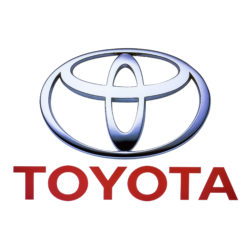Top Class Actions’s website and social media posts use affiliate links. If you make a purchase using such links, we may receive a commission, but it will not result in any additional charges to you. Please review our Affiliate Link Disclosure for more information.

On appeal to the Ninth Circuit, the plaintiffs are seeking a comeback after their claims were dismissed in November 2015.
Their class action lawsuit alleges that vehicles made by Toyota and other manufacturers have a design flaw that makes them vulnerable to being hacked remotely, putting drivers and passengers at risk.
But U.S. District Judge William H. Orrick dismissed the plaintiffs’ claims, finding they were flawed for lack of an adequate allegation of harm.
The judge noted that the plaintiffs did not alleged any cars had actually been hacked, and any allegations of possible future injury are not sufficient to state a claim.
Judge Orrick also rejected plaintiffs’ allegations of economic harm, brought in terms of the diminution of the vehicles’ value once word got out about the alleged hacking defect. That allegation was also too speculative, the judge determined.
Without alleging harm, Judge Orrick reasoned, the plaintiffs don’t have standing to sue.
Now that the plaintiffs have appealed the dismissal to the Ninth Circuit, defendant Toyota argues the dismissal was correct. Toyota specifically takes aim at claims made by plaintiff Helene Cahen, the owner of a Toyota-made 2008 Lexus RX 400 H.
The company argues Cahen failed to allege she suffered any actual harm due to the supposed hacking defect, showing only that such hacking is “conceivably possible … in highly controlled, experimental settings.”
Toyota also argued that Judge Orrick correctly dismissed Cahen’s claim of invasion of her right to privacy under the California constitution.
Judge Orrick found that Cahen failed to establish that she had a legally protected privacy interest that was violated by the collection of data from her vehicle.
Cahen brought this vehicle hacking class action lawsuit in March 2015, roping in General Motors and Ford Motor Co. in addition to Toyota.
Plaintiffs allege the problem lies in the design of these vehicles’ electronic control units, or ECUs. Each vehicle can contain more than 35 such units, the plaintiffs claim.
They cite a 2013 study funded by the Defense Advanced Research Projects Agency, in which they say researchers were able to use laptop computers to gain control of the engine, brakes, and other components of a 2010 Toyota Prius and a 2010 Ford Escape.
According to the plaintiffs, the researchers were able to make the vehicles accelerate and turn. They could allegedly disable the brakes and alter dashboard indicators like the speedometer and gas gauge.
The vehicle hacking class action lawsuit raises claims of fraud, breach of contract, and violation of several states’ consumer protection laws. They allege they never would have bought the vehicles at issue had they known about hacking vulnerability.
The plaintiffs are represented by attorneys Donald Slavik of Slavik Law Firm LLC and Marc Stanley, Martin Woodward and Matthew Zevin of Stanley Law Group.
The Toyota Vehicle Hack Class Action Lawsuit is Cahen, et al. v. Toyota Motor Corporation, et al., Case No. 16-15496, in the U.S. Court of Appeals for the Ninth Circuit.
ATTORNEY ADVERTISING
Top Class Actions is a Proud Member of the American Bar Association
LEGAL INFORMATION IS NOT LEGAL ADVICE
Top Class Actions Legal Statement
©2008 – 2024 Top Class Actions® LLC
Various Trademarks held by their respective owners
This website is not intended for viewing or usage by European Union citizens.














